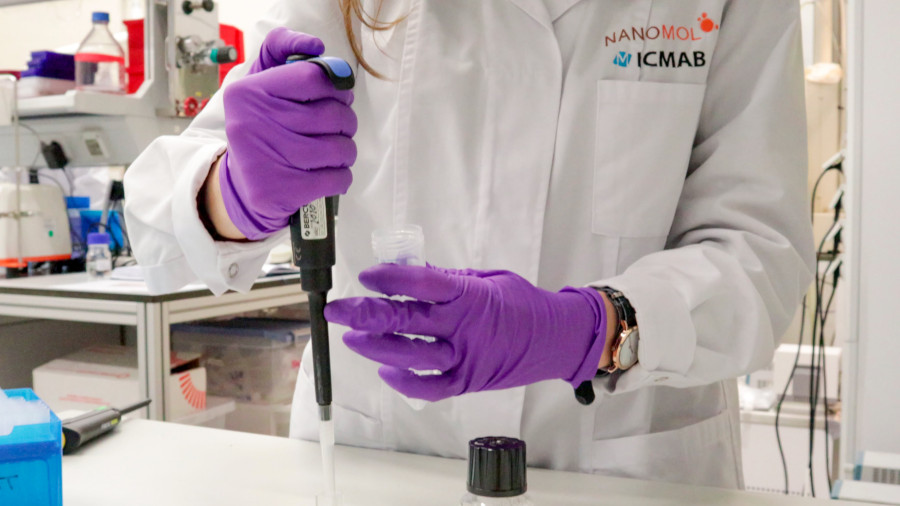A new therapy paves the way for the treatment of Fabry disease
An international research team led by ICMAB with the participation of the UAB has developed a new nanotechnology-based therapy called nanoGLA for the treatment of Fabry disease. The new therapeutic solution has shown remarkable efficacy in preclinical studies. The study was published this December in Science Advances in open access.

Fabry disease is a rare genetic disorder caused by a deficiency of the enzyme GLA (alpha-galactosidase A), which leads to the accumulation of fatty substrates (mainly globotriaosylceramide or Gb3) in cells, with severe effects on various organs. The nanoGLA therapy, based on the use of peptide-targeted nanoliposomes, effectively delivers the deficient enzyme GLA, encapsulated in the nanoliposomes, to the organs most affected by this disease. The researchers have managed to produce nanoGLA with the necessary quality and quantity for preclinical testing, as well as for advancing into clinical phases.
In studies with mouse models of Fabry disease, nanoGLA demonstrated improved efficacy compared to therapies using the unencapsulated enzyme, showing effectiveness in affected organs, including the brain, a key milestone that current therapies do not achieve. These results highlight the potential of nanoGLA to address both the systemic and cerebrovascular manifestations of Fabry disease.
In recognition of the importance of this innovation, the European Medicines Agency granted nanoGLA orphan drug designation (Orphan Medicinal Product Designation) in 2021, a crucial step in driving its development.
This breakthrough has been made possible through the collaboration among researchers from several international institutions, including the Institute of Materials Science of Barcelona (ICMAB-CSIC), at the UAB campus; the CIBER-BBN; the Institute of Biotechnology and Biomedicine of the UAB (IBB-UAB); the Vall d'Hebron Research Institute (VHIR), a UAB-partner institute; companies such as Nanomol Technologies SL (at the UAB campus) and Leanbio SL, the Advanced Chemistry Institute of Catalonia (IQAC-CSIC), and international collaborators such as the Joanneum Research-Institute for Biomedical Research and Technologies (HEALTH) (Austria), Technion-Israel Institute of Technology (Israel), Guangdong-Technion Israel Institute of Technology (China), Aarhus University (Denmark), and Labcorp Drug Development (UK).
Elisabet González, ICMAB researcher and one of the lead authors of the article, explains: "The new nanoGLA formulation represents a promising opportunity for Fabry disease patients, especially in addressing the neurological manifestations of the disease, a limitation that current therapies cannot overcome. Our goal is to develop safer and more effective treatments by harnessing the potential of nanotechnology."
These results, obtained within the framework of the European project Smart4Fabry, funded by the European Union's Horizon 2020 research and innovation programme, have greenlighted the continued pharmaceutical development of nanoGLA toward clinical phases with human patients. The European Commission, through the EU Phoenix and Nano4Rare projects, has provided the necessary funding to complete the preclinical phase and obtain approval to begin the clinical phase.
Research article:
Judit Tomsen-Melero, et al., Targeted nanoliposomes to improve enzyme replacement therapy of Fabry disease. Science Advances 13 Dec 2024, Vol 10, Issue 50, DOI: 10.1126/sciadv.adq4738